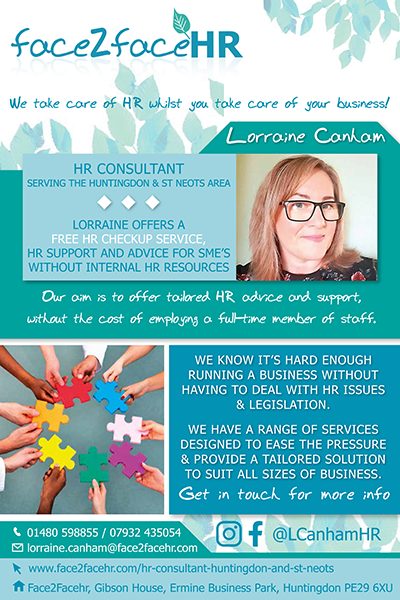According to new research, the global Covid-19 pandemic has created new causes of job–related stress that have displaced the ‘traditional’ main reason for workplace anxiety, ever-increasing workloads. Workload appears to have been pushed aside, whilst other factors which were not prominent or may not have existed before the pandemic now contribute significantly towards moulding job stress.
Find out what stress is, what causes it at work, whether it is an issue in your business, and why you need to do something about it.
The formal definition of work-related stress according to the Health and Safety Executive (HSE) is:
“The adverse reaction people have to excessive pressures or other types of demand placed on them at work.”

Stress is a state rather than an illness, and there’s certainly an argument that a bit of pressure can be a good thing. However, there’s a difference between pressure and stress. Stress occurs when this pressure becomes excessive, and if stress becomes excessive and prolonged, mental and physical illness may follow.
What causes it?
Most common causes for stress-related absence are workload, management style, non-work factors, relationships at work, and organisational or environmental changes, such as a pandemic. So most stress-related absence is work-related.
Stress affects people in different ways, and what one person finds stressful can be normal to another. Also certain individual factors can have a bearing on whether someone suffers stress in each situation, such as background and culture; personal circumstances; health status; ethnicity, gender, age or disability; and other demands being placed on them.
How much of a problem is it really?
According to the HSE, stress is the single biggest cause of sickness in the UK, affecting one in five employees and costing employers up to 105 million lost days a year. Two fifths of employers report that stress-related absence has increased.
Even for very small businesses, those figures mean that stress is something you should be taking seriously and addressing, regardless of any less-than-sympathetic responses that stress-related absence may elicit.
What does it cost businesses?
The current median cost per employee per year of sickness absence is £600, and as stress is one of the leading single causes, a large portion of that average cost can be attributed directly to stress.
And as well as sickness absence cost, the risk of legal claims for stress raises the question of compensation levels. In serious cases where an employee has a breakdown, suffers psychiatric damage and in some cases doesn’t work again, this can easily run into the hundreds of thousands.
Ten steps to addressing a stress problem in your business.
If you identify that an individual or group is suffering with stress, you need to address it to stop any negative impact it’s having and prevent the problem from becoming worse. So what should you do about it? Here are ten key steps you can take to address a stress problem.

If you identify that an individual or group is suffering with stress, you need to address it to stop any negative impact it’s having and prevent the problem from becoming worse. So what should you do about it? Here are ten key steps you can take to address a stress problem.
1. Find root causes
First do what you can to find out the root cause of the stress and make adjustments where possible. Root causes may be related to workload, relationships at work, lack of support, poor management or organisational change. However, addressing your particular stress problem means identifying the specific cause, rather than simply looking at the most common causes.
You can discover the root causes by identifying specific employees who are suffering from work-related stress and asking them. Alternatively, ask staff more widely about the key factors that are or may be causing stress in their team.
2. Take the problem seriously
Reassure staff that you are listening to their concerns and taking the problem seriously. Above all, make sure they feel involved, listened to, and confident that you are taking steps to support them and resolve the problems.
3. Discourage ‘eye rolling’
There is frequently a problem with ‘eye-rolling’ when an employee is identified as suffering from stress or is absent with stress. Managers or other staff can be very disparaging, intolerant and impatient, and if the team are unsupportive or dismissive of the problem, then it is less likely to go away, whatever steps you take to deal with it.
Lead by example by taking it seriously. In addition, make sure staff as a whole understand that suffering with stress is not a sign of weakness, but is instead something that can be caused or exacerbated by a number of factors and is something that can happen to everyone.
4. Encourage seeking help
If a staff member highlights that they are suffering from stress symptoms, encourage them to seek help elsewhere. Their GP should usually be their first point of call.
If the stress is mainly work-related, you may be able to point them to external options for tackling it. In addition, things like online tools for stress reduction and meditation apps can also be good, in combination with workplace steps to address the problem.
5. Use occupational health
A good occupational health specialist can provide you with advice on adjustments you can make to address stress-related health problems. This would usually be in the form of a referral for a specific individual. Just as they might advise adjustments to support an employee suffering from physical ill-health, the same would be true of mental ill-health, including work-related stress.
6. Provide counselling
Employee assistance programmes don’t have to be too costly and can involve a helpline with telephone counselling available for staff. You may even already have something through your insurance, so do check. If so, make sure details are available to staff and encourage them to use it for work-related issues and any other problems they may have.
7. Change management style
Management style is highly likely to be the problem at least partially, so take steps to address this as quickly as possible. That might involve coaching or training for managers or implementing changes in how things operate in your business.
Look at implementing a bit more structure in performance management. Increase the frequency of line manager one-to-ones, for instance, or take steps as a business owner to make sure you are holding your managers accountable for managing staff in a supportive way.
8. Improve relationships
Think about how you can improve relationships at work. It could be a specific team-building event, although the thought of those can fill some people with horror! Or just arrange some social time to foster a more relaxed atmosphere and encourage collaboration. If you organise social events, make these as inclusive as possible, considering factors like childcare issues and other personal commitments.
If there is a specific problem with relationships in a team, some external mediation can really work wonders. A trained experienced mediator will know how to unpick problems and facilitate solutions to prevent recurrence.
9. Adjust workload
A heavy workload is the most common specific cause of work-related stress. Are you expecting too much of your staff? In many small businesses, simply recruiting additional staff often isn’t an option due to tight budgets. But if workloads are too high you can consider alternative approaches to make them more manageable.
Are there things staff are doing that aren’t really necessary at all? Eliminate all tasks that don’t actually add value. It would be very unusual if there are none of these, and you can find out what they are by asking staff.
Are tasks being completed as efficiently as possible? Again, you can ask staff this, but there are bound to be some tasks that involve duplication or inefficiency. Addressing those can reduce workloads without costing money.
Is there technology you can use to reduce workload? Obviously this might involve more of a financial investment, but it may be worth looking at, even if it’s more of a longer-term aim than an immediate solution.
10. Improve job design
A high degree of control over their work can be a key factor in reducing stress, so look at how jobs in your team are designed. Can adjustments be made so that employees have a bit more control over what they are doing, and more decision-making capacity within their role? This isn’t always possible, but there are usually minor adjustments that you can make to processes and procedures or task allocation which can increase your employees’ sense of control and independence.
A combination of quickly addressing specific issues and improving the wider common factors should help reduce your stress problem significantly. In addition, hopefully your approach will involve systemic changes that will contribute to preventing stress problems in the future.
What are the legal risks?
Employers who fail to deal with stress are at risk of the following claims:
- Negligence
- Breach of implied terms in a contract
- Disability discrimination
- Constructive dismissal
- Statutory Duties under health and safety legislation
Most of those claims are not under the jurisdiction of an employment tribunal. Consequently, they are not subject to caps on compensation as some tribunal claims are.

Any other reasons for dealing with it?
As well as avoiding all the doom and gloom mentioned above, dealing with stress can have some real positive effects. People feel more motivated and committed to their work and perform better. Relationships at work are better, as are retention rates and absence rates.
All employers need to recognise that stress is an issue that isn’t going to go away. Many managers have little tolerance for stress in their employees, and there is often a perception that stress is a sign of weakness, or not a ‘real’ reason for sickness absence. But the simple facts are that stress is costing you money and time, and it makes business sense to address it.
For my tips on handling stress in your business and avoiding expensive legal claims, or for more help, contact me on 01480 598855 or email lorraine.canham@face2facehr.com






